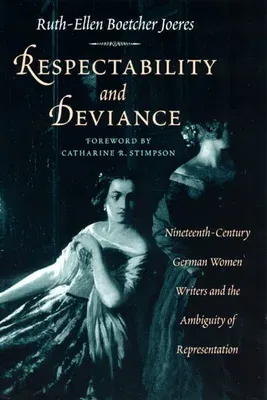Ruth-Ellen Boetcher Joeres
(Author)Respectability and Deviance: Nineteenth-Century German Women Writers and the Ambiguity of RepresentationHardcover, 1 February 1999

Qty
1
Turbo
Ships in 2 - 3 days
In Stock
Free Delivery
Cash on Delivery
15 Days
Free Returns
Secure Checkout

Part of Series
Women in Culture and Society
Part of Series
Women in Culture & Society (Hardcover)
Print Length
384 pages
Language
English
Publisher
University of Chicago Press
Date Published
1 Feb 1999
ISBN-10
0226400654
ISBN-13
9780226400655
Description
Product Details
Author:
Book Format:
Hardcover
Country of Origin:
US
Date Published:
1 February 1999
Dimensions:
23.5 x
15.9 x
2.59 cm
Genre:
Germany
ISBN-10:
0226400654
ISBN-13:
9780226400655
Language:
English
Location:
Chicago, IL
Pages:
384
Publisher:
Weight:
621.42 gm